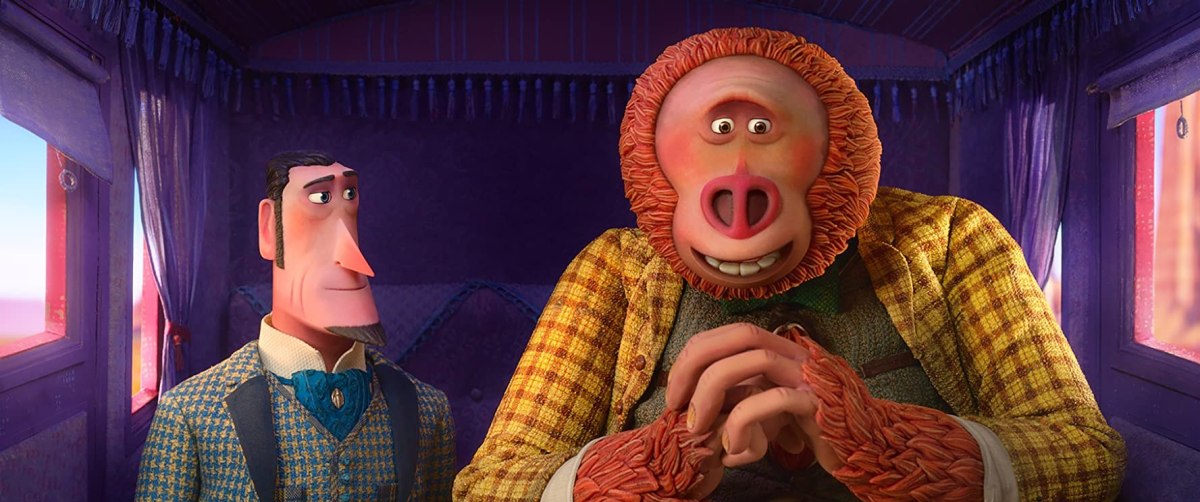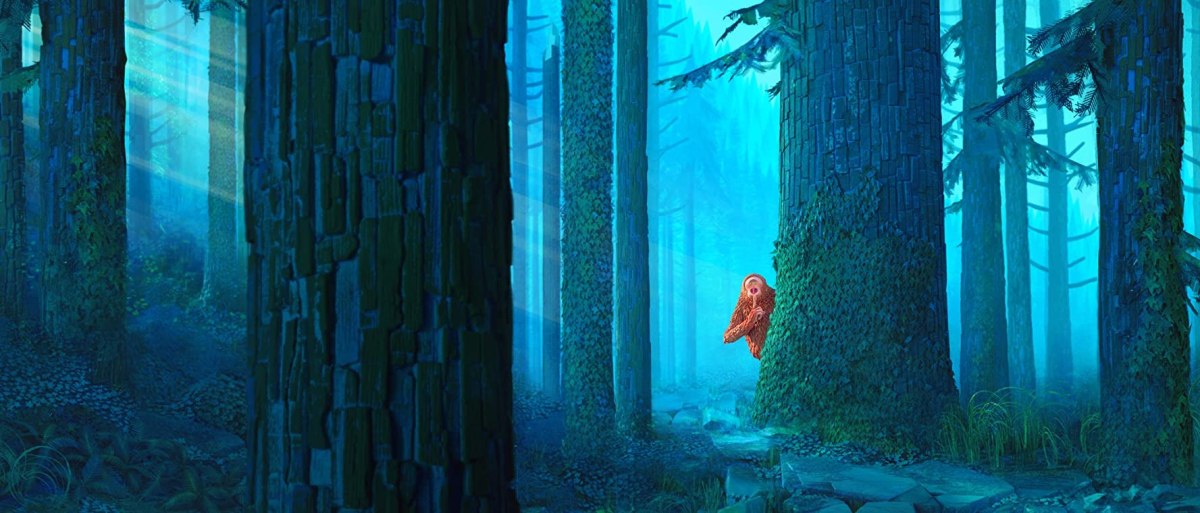For those who enjoy the rarity and visual splendor of stop-motion, Laika films might feel like a gift from God. The studio’s reputation has been enviable, as it has come out with multiple well-received animated features over the past decade after entering the scene with contracted work on Tim Burton’s Corpse Bride – perhaps bringing the element that made it stand out despite underwhelming factors. Each of the films made their budget back and were a testament to the time and craftsmanship put into the animation style that results in images that aren’t comparable to CGI. Maybe with all of this in mind, I had too many expectations placed on the studio’s latest film, Missing Link. For all the beauty on display, it misses many of the marks previous ventures hit with perfectionism. However, of course, a production company only does so much – they might bring the talent to the table to bring the project to life but ultimately it’s other creative forces that decide the fates of these movies – and it’s most definitely those forces that stumble here.
Missing Link boasts a talented voice cast with too many names to mention, but the film focuses on a trio made up of Hugh Jackman as Lionel Frost, an investigator of mythological creatures, Zoe Saldana as Adelina Fortnight, a recently widowed woman from Lionel’s past, and Zach Galifianakis as Link/Susan. When Lionel decides to prove himself to the research societies of England that mock him by capturing Bigfoot, so begins the adventure. After meeting him and discovering the creature is intelligent and can speak English, the fluffy and kind half-man-half-animal pleads with Lionel to take him to the Himalayas to find the Yetis, whom he considers to be cousins by nature. Before long, Adelina is dragged along for the ride – wanting to escape the cage of her house – and the three explorers embark on a trek to the mountains to help the creature (who later decides on the name Susan for himself) find his place after years of loneliness.

More than anything, Missing Link is about the sense of belonging to somewhere or something. Lionel’s arch-nemesis comes in the form of Lord Piggot-Dunceb (Stephen Fry), who shakes with rage at the thought of a new, open-minded researcher disrupting the norms of the noble way of thinking. It becomes apparent rather quickly in the Lord’s actions and dialogue that he’s meant to represent a certain kind of man, one who believes there’s a pecking order where he, of course, is at the top of the hierarchy. Though not set in present times, writer/director Chris Butler draws comparisons to the small-minded figures that are recognizable in today’s world – those who deny change – as it might unhinge the power structure they reap the rewards from. Lionel’s place in the film is full of self-reflection and draws parallels to Susan’s in many ways as they both reach for acceptance.

As would be expected, the animation is so detail orientated and textured that it seems possible to reach out and touch the on-screen figures, with their noses red from the cold and their garments soft with fuzz. The cinematography of Missing Link also draws focus on a variety of color – the sunsets, the icy blue mountains, and the luscious green of the jungles are visually stunning. There’s something undeniably satisfying about knowing that so much of Missing Link is made by hand.
As the narrative evolves from an exploration of new lands into an investigation of the family unit created by the trio on screen, the film becomes more mature and successfully brings development to the characters and well-written emotional moments, but it never quite hits a home run for some reason. The runtime is a breezy 95 minutes, which both helps and hinders the film in its quest for a wholesome creation that’s as fully formed as something that took this much effort to create should be. I liked the progression of the story, and the backdrops were always beautiful, but I was kept at arm’s length by characters that never had enough time to win me indeed over. By the time the credits rolled, it was as if only half the story of Missing Link was told – a good story, but an underwhelming one.
Missing Link is without a doubt likable, but if it’s a sin to wish for more when I hear of a new Laika film, then consider me guilty as charged. It’s difficult to pinpoint where exactly the improvements could be made. Maybe an extra 15 or so minutes would’ve helped seal the deal, but Missing Link is still an enjoyable time with clever references to the ugliness of colonization.
★★½
To help us continue to create content, please consider supporting us on Patreon.

